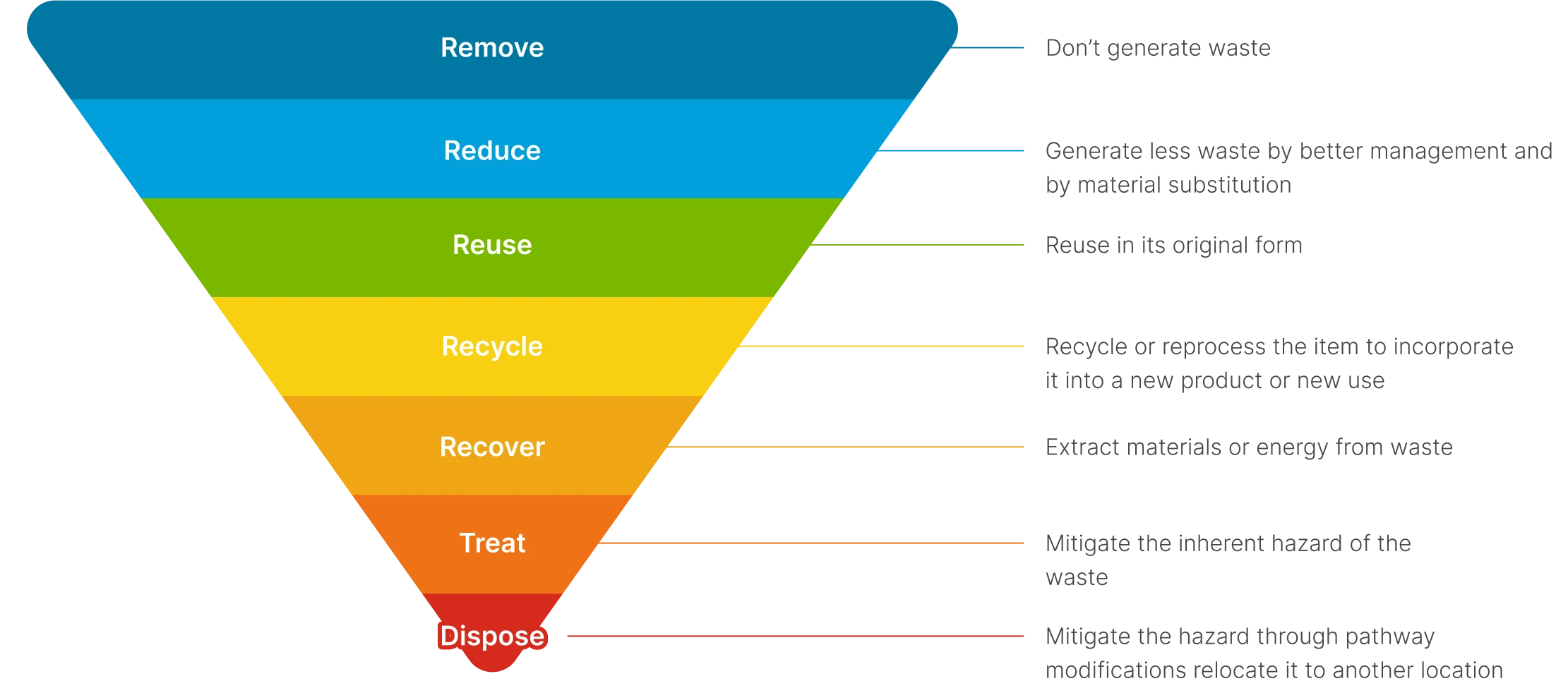

Waste Management
Importance and Mission
PTTEP prioritizes environmental sustainability and responsible resource utilization throughout its operations. This commitment necessitates robust waste management practices. By adhering to stringent environmental standards and implementing sustainable waste management strategies, PTTEP effectively minimizes its environmental footprint. These practices not only enhance operational efficiency but also reduce waste disposal costs and maximize resources utilization through 5Rs principle. Effective waste management plays a crucial role in driving PTTEP's achievement of both environmental sustainability and long-term operational excellence.
Goals
- 1 At least 50% of main structure of E&P business must be reused with safety awareness and efficient conditions by 2030
- 2 Zero waste to landfill in domestic operations including petroleum support bases by 2025 and all operations (both Thailand and overseas) by 2030
Management Approach
PTTEP handles waste from its operations in compliance with regulations and laws stipulated by the countries where PTTEP operates as well as the waste management hierarchy. The priority is to avoid generating waste at source, by removing and reducing waste type and volume. Then, the emphasis is on the strategy to reuse, recycle, and recover waste which reflects the 5Rs concept. Waste treatment and disposal are the last in the hierarchy to consider. PTTEP has also established the "Circular Model for E&P" strategy, and its long-term goals to align with the waste management hierarchy.

In order to ensure effective waste management according to the above waste management hierarchy, PTTEP has identified and implemented the best alternative method beyond the local regulatory requirements. The Company has continuously improved our waste management alternatives to elevate the management system standard, focusing on maximizing the value of existing resources for prolonged reuse. This includes an emphasis on offshore wellhead platform reuse, including topside and jacket, as well as operational main equipment.
Furthermore, PTTEP regularly conducts the Safety, Security, Health and Environment Management System (SSHE MS) audit including waste management to identify opportunities for improving waste management performance through manifest record examinations, operating site walk-throughs, waste sorting and transportation audits, etc. In addition, the accuracy and completion of PTTEP waste data including waste diversion from landfills are assured by an independent body as part of report verification. These practices are effectively maintained by providing waste management training to employees.
We achieved zero hazardous waste to landfills for operating assets in Thailand in 2020, and achieved zero waste to landfills for all operating assets and petroleum support bases in Thailand in 2024 which is ahead of schedule and aim to achieve for all operating assets in Thailand and overseas in 2030 In addition, PTTEP also has regular audits and verifies the performance of waste treatment and disposal contractors to ensure compliance with obligation requirements and the Company's stringent waste management procedure. This results in contractors improving their waste management areas and processes in a correct and proper manner.